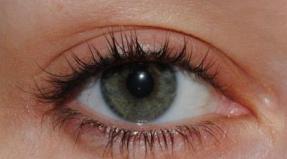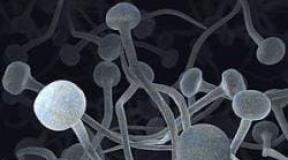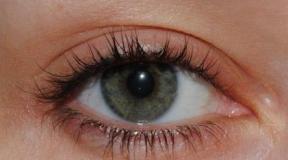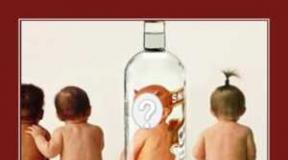How does alcohol affect conception? The effect of alcohol on conceiving a child in men and women
According to the majority, conception and alcohol are incompatible. However, anonymous surveys show that every third pregnancy occurs when one of the partners (less often both) is intoxicated. These statistics suggest that alcohol does not harm the unborn baby in any way. But why then is it prohibited to drink alcohol during pregnancy? If you understand the process of fertilization from the very beginning, everything becomes clear.
Society has a negative attitude towards alcohol in early pregnancy. But it is generally accepted that there is no negative effect of alcohol on conceiving a child in men. Therefore, future fathers drink without fear when planning a pregnancy. But intoxication as a result of drinking ethanol (and even worse, using drugs) has a noticeable effect on sperm, changing their activity and quality.
At conception, two genetic sets merge - male and female. To think that only the expectant mother needs to prepare for pregnancy is irresponsible. Only one sperm is needed, but it must be the best.
A man should not drink before conception for the simple reason that alcohol equalizes the chances of healthy and strong cells with pathological ones. Approximately a quarter of sperm in modern young people have various types of disorders. In the competition for an egg, the strongest, healthiest and fastest wins - this is what happens with people leading a sober lifestyle. If the future dad drinks a few drinks before conception, then alcohol and sperm will interact. Strong and healthy cells will be on par with pathological ones. As a result, their chances of success will be equal.
Men think that beer has no effect on conceiving a child. In reality, this low-alcohol drink is a natural source of estrogen. Therefore, among representatives of the stronger sex who are addicted to it, the body changes its structure according to the female type. The effect of beer on conceiving a child in men is obvious: testosterone levels in the body decrease, hyperestrogenism forms, libido is suppressed and the quality of seminal fluid deteriorates.
If these arguments are not enough for patients, doctors recommend that they verify everything on their own. The effect of alcohol on a spermogram can be checked as follows: take a test and evaluate the result, then abstain from alcohol for at least 3 months and repeat the procedure. The comparative characteristics will shock you.
The influence of alcoholic beverages on women's health
The woman has an even more unfavorable prognosis. Ethanol affects ovulation. From the moment of birth, a girl has a certain amount. If a woman consumes alcohol during her life, it destroys the genetic set of future gametes. The eggs lose their quality, their shell is destroyed, and breakdowns occur. Even if a girl does not plan to become pregnant now, the negative effects of alcohol may appear in the future.
Alcohol and ovulation with subsequent conception are incompatible concepts. Regular consumption of alcohol (even if it is drinking beer 3-4 times a week) causes ovarian depletion. Effective beer phytoestrogens cause hormone-dependent diseases - endometriosis, fibroids, ovarian cysts. Stronger drinks affect the brain, heart and liver, impairing blood circulation. Drunken conception causes detachments, hematomas, miscarriages and incomplete self-abortions.
Monitoring the effect of alcohol on a woman’s eggs by analogy with examining the quality of male seminal fluid is an unrealistic task. But in patients who abuse alcoholic beverages, menopause occurs earlier, tumors of benign and malignant origin are more likely to form, and life expectancy is reduced.
How much not to drink before conception when planning pregnancy
Couples planning a child doubt how long they should not drink alcohol before conceiving. If we are talking about frequent consumption and large doses of alcohol, then it is advisable to eliminate such situations completely, and not just in preparation for pregnancy. A healthy lifestyle when planning is half the way to having children without congenital pathologies.
It is clear that most adults cannot completely get rid of alcohol. Holidays, birthdays, corporate events - one way or another, alcohol is present and consumed. Therefore, it is important for a couple to maintain a clear time frame during which they should not drink alcohol when planning a pregnancy. It is recommended that a man not drink for at least 3-4 months before conceiving. During this period, the full cycle of spermatogenesis occurs. Only by giving up all bad habits can a man be considered ready to conceive.
For women, the time frame is the same - 3-4 months. It is important to completely eliminate alcohol at the beginning of the menstrual cycle in which conception is planned. The maturation of the egg begins in the first days of menstruation and ends with ovulation after about 2-3 weeks.
As you can see, a man has to prepare more for planning a pregnancy than his partner. This once again proves that the responsibility does not lie only with the woman.
Consequences of drunken conception
Drunken conception is dangerous due to consequences that can arise directly during pregnancy or after the birth of the baby. Sometimes parents forget that they drank alcohol on the day of fertilization, trying to find the causes of problems elsewhere. However, beer can also affect the conception of a child, not to mention stronger drinks. Without finding an explanation for the problem, parents take the situation for granted. In fact, it’s all due to conception while intoxicated.
Fetal alcohol syndrome (drunken conception syndrome) is accompanied by psychophysical disorders of varying intensity that can occur at different stages of a child’s growth. If conception occurs after alcohol, it can lead to the following consequences:
- intrauterine growth retardation, characterized by insufficient body weight and short stature;
- pathological deviations in appearance (cleft lip, cleft palate, deep-set ears, orbital defects;
- cardiovascular diseases, defects;
- liver dysfunction (alcohol during conception affects not only the hematopoietic organ of the parents);
- deformities (fused toes, short feet, deformed chest).
Every couple hopes that alcohol during conception will not affect the health of their unborn baby. Indeed, most parents have a lucky break. However, statistics show that 10 babies out of 1000 newborns face serious consequences from parental alcohol consumption at the time of conception.
There are many cases of unplanned pregnancy and alcohol intoxication. Under the influence of alcohol, responsibility and self-control are lost.
Drank alcohol without knowing she was pregnant
Alcohol in the first month of pregnancy can have an irreparable effect on the unborn child. There are many cases where a woman did not know about pregnancy and drank until she was pregnant. How serious the consequences of carelessness will be depends not only on the quantity, but also on the quality of alcohol.

It is believed that alcohol in the first days after conception or in the first week after conception will not harm the embryo. During this period, the woman has not yet learned about the new position, since the fertilized egg moves towards its goal within 5-10 days after fertilization. If the expectant mother drank alcohol in the form of a glass of wine or a glass of beer, then she and her baby are not in danger. The development of the child during this period does not yet depend on the woman, because blood circulation between them has not yet been established.
If alcohol in the first week of pregnancy was consumed in large quantities and mostly strong, then a miscarriage or its threat cannot be ruled out. As is known, ethanol penetrates into all biological fluids. During and without pregnancy, alcohol is detected in the pelvic organs. Large doses of strong drinks cause intoxication of the fertilized egg, even if it has not yet implanted. Therefore, expectant mothers should completely avoid alcohol during pregnancy.
Alcoholic drinks during IVF
During the in vitro fertilization protocol, drinking alcohol, including beer, wine, and champagne, is not recommended. A woman’s body, under the influence of hormones, works hard to produce high-quality oocytes in sufficient quantities. In addition, the drugs used in the protocol (Gonal F, Puregon, Clomid, Menopur, Pregnil and others) have a toxic effect on the liver. If you additionally take alcohol, you will not be able to avoid problems with this organ in the future.
The concepts of IVF and alcohol are incompatible. Infertility requires a responsible approach to treatment. Theoretically, after follicular puncture, you can drink alcohol before embryo transfer. During this period, the germ cells are outside the woman’s body. However, no one can guarantee that alcohol will not affect the result of in vitro fertilization.
Conception and alcohol are incompatible things, but some people find it so difficult to give up alcohol that they ask a specialist to name a dose that is safe for the pregnancy planning process. It is believed that a little good alcohol is even beneficial for the body, but alcohol tends to accumulate, which usually manifests itself during the period of planning a child. The dangers of drinking alcohol before and after conception and the effects of alcohol on the female and male reproductive system will be discussed in this article.
In ancient times, even beer was prohibited for women under 30 years of age. Men were treated more leniently - only excessive drunkenness was condemned. Research by modern scientists proves the opposite: father's alcoholism is a more serious pathology than mother's drunkenness. 70% of chronic alcoholics were born from drinking fathers and only 10% from alcohol-abusing mothers. Moreover, a high risk of having mentally retarded children is observed from fathers who are drunkards.
Many couples have been planning a child for years, undergoing examinations, but attempts to get pregnant are unsuccessful. But one day, after wild holidays and large doses of alcohol, it turns out that conception has occurred.
There are several theories about the harmless effects of alcohol during conception:
- It is not the ethanol that is part of alcoholic beverages and other alcohol metabolites that are harmful to the unborn child, but the toxins present in the body of a pregnant woman. Under the influence of alcohol, the protective functions of cells and tissues simply decrease, and the body becomes more vulnerable.
- Drinking alcohol is considered harmless until the fertilized egg attaches to the wall of the uterus. Until implantation, the embryo is not connected to the circulatory system, so at such an early stage of pregnancy, alcohol does not affect the unborn baby.
The above facts have not been proven or disproved by scientists.
According to the first point, toxic substances enter the body of the expectant mother not only with alcohol, but also when inhaling air and eating food. According to the second point of view: if ethanol is present in the blood, then the substance will appear in other biological fluids, quickly crossing cell membranes. When drinking alcohol during conception, ethanol may penetrate into the mucus that covers the inner lining of the fallopian tubes and the endometrium, through which the egg and sperm move. There is no scientific evidence regarding harm during the passage of female and male reproductive cells through the fallopian tubes, but there is little benefit from this.
Male reproductive cells - sperm - are delicate and fragile. Sperm quality is affected by illness, fatigue, and stressful situations. Alcohol containing ethyl alcohol reduces the mobility of male germ cells, as a result of which the ability to fertilize (fertility) decreases.
Regardless of the strength of alcohol, the effects of ethanol are equally harmful, so men are not recommended to conceive while intoxicated.
Sperm are produced long before taking a dose of alcohol, but alcohol metabolites penetrate into the seminal fluid an hour after drinking. Ethanol content leads to destructive processes in germ cells. Spermatozoa lacking a tail are not capable of conception. Long-term and systematic intake of alcohol-containing drinks leads not only to changes in the morphology of sperm, but also in genetics. When an egg is fertilized with a genetically unhealthy sperm, the risk of having a child with congenital pathologies increases.

The sperm of a healthy man contains 1/4 of the pathological sperm, but the abnormal sperm are inactive or non-viable. In males who abuse alcohol, the number of sperm with damaged DNA increases and the risk of egg fertilization with unhealthy male cells increases.
If a man is seriously thinking about becoming a father and dreams of a healthy baby, it is recommended to refrain from drinking alcohol for 3-4 months - during spermatogenesis (sperm maturation). Sperm are renewed every three months, but the process of development of male cells is continuous, that is, as some live ones die off, others are produced.
Excessive consumption of alcoholic beverages leads to the removal of zinc from the body, which leads to a decrease in libido. The more and longer a man drinks, the lower the chances of having full sexual intercourse and conceiving a healthy child.
Conception while intoxicated causes miscarriages, missed pregnancies, congenital deformities, and improper physical and mental development. Most often, pregnancy does not occur due to low sperm motility. But if fertilization occurs and the pregnancy ends successfully in childbirth, the consequences of drunken conception are likely at a later age. If abnormalities develop in a child not immediately after birth, doctors do not take into account the onset of pregnancy while one of the parents was intoxicated, since the baby was born relatively healthy.
Alcohol and women's health
A set of eggs in females is formed in childhood. After puberty, a girl develops one or more eggs in each cycle, ready for fertilization. Unlike sperm, which are renewed every three months, female reproductive cells are constantly in the body and are exposed to all toxic substances that affect the body.
By drinking even low-alcohol drinks - beer, gin and tonic, wine, girls harm their future children.
Every month, the egg is released from the follicles and ovulation occurs. Alcohol disrupts the ovulatory process and causes an increase in the number of anovulatory cycles (without ovulation).
The morphology and structure of female germ cells also changes under the influence of alcohol. Ethanol has a destructive effect not only on the dominant follicle in which the oocyte matures, but also on the entire lifelong supply of eggs. Even if a woman stopped drinking several months ago, the chances of conceiving a healthy baby are minimal.
Abuse of alcoholic beverages during pregnancy planning is fraught with miscarriage, improper formation and attachment of the placenta, dysfunction of the kidneys, liver, and pancreas. Moreover, a female representative who is planning a child and drinks alcohol has:
- Reduced blood supply to the uterine body;
- Defective ovulation;
- Destruction of parts of the central nervous system;
- The death of brain cells, especially the pituitary gland and hypothalamus, which are responsible for maintaining hormonal levels during pregnancy.
Under the influence of alcohol, an increased secretion of secretory fluid occurs in the fallopian tubes, which can result in blockage. It takes several days for the fertilized egg to travel into the uterus through the tube and then implant. Due to blockage of the fallopian tube, the female reproductive cell begins to develop before reaching the uterine cavity. Drinking drinks containing ethyl alcohol before and after conception increases the risk of ectopic pregnancy.
The effect of alcohol on a child
If a man or woman frequently drinks alcohol, the unborn child may experience the following anomalies:
- Developmental delay;
- The newborn is weak and underweight;
- Congenital malformations leading to disability;
- Psychical deviations.
It is impossible to predict possible pathologies of future offspring - it all depends on the degree of damage to the germ cells. Taking into account the destruction of DNA molecules of eggs and sperm, slight delays in physical and mental development are likely, up to serious diseases of important organs and systems.
The most common defects due to drunken conception in a child:
- Cleft palate - a cleft of the soft and hard palate, cleft palate, as a result of which the nasal cavity is not isolated from the oral cavity;
- Cleft lip - cleft lip, the formation of an ugly cleft.
Both pathologies form before the 8th week of pregnancy, and the defect can only be detected in the later stages, when artificial termination is no longer performed.
The presence of defects creates difficulties in feeding and developing the child’s speech functions. In both cases, the baby will undergo multiple operations to eliminate defects, followed by long rehabilitation periods.
Fetal alcohol syndrome
Fetal alcohol syndrome (alcohol embryofetopathy) is a set of mental and physical congenital malformations that develop as a result of the consumption of alcoholic beverages by future parents before or after conception. Children with fetal alcohol syndrome suffer from damage to the central nervous system, mental retardation, intellectual and behavioral disorders, as well as abnormalities in the structure of the brain.
Almost all children of alcoholics are born with low body weight and height. Often, fetal syndrome is manifested by congenital defects of the heart and reproductive system. The severity of the lesions depends on the duration of alcoholism of the woman and man.
Children with alcoholic embryofetopathy can be easily distinguished by the following external signs:
- Short and narrow eyes;
- Flattened and wide bridge of the nose in an infant;
- Smoothness or absence of the filtrum (vertical strip between the nose and upper lip);
- Thin upper lip;
- The presence of epicanthus (Mongolian fold) in the area of the lacrimal canal;
- Small size of the head and, accordingly, the brain.
Not all signs of fetal alcohol syndrome are visible externally in a child. A hidden manifestation of alcoholic embryofetopathy is possible, but the pathology will certainly manifest itself over time. Hearing or vision impairment, low learning ability, problems with memory, concentration, and behavior are common problems for children whose parents abuse alcohol.
What to do if conception occurs while intoxicated
Often people start thinking after what happened. If a couple conceives a child while intoxicated, there is no need to panic. To increase the baby’s chances of being born healthy, you must adhere to the following recommendations:
- Do not be nervous. If future parents and their close relatives do not have alcohol addiction, the chances of the child being born healthy are high. The mother's anxiety during pregnancy negatively affects the formation of the fetal nervous system.
- Register for pregnancy in a timely manner. When diagnosing, warn the obstetrician-gynecologist about the problem. The doctor will conduct a diagnosis that will show how the baby is developing and whether it meets the deadline. Next, the doctor will give recommendations regarding preventive measures to increase the chances of having a healthy baby.
- Adhere to a healthy lifestyle: stop smoking, eat a balanced diet, spend more time outdoors.
Summarizing
Conceiving a child while intoxicated is not always dangerous, but the risk is always present.
Planning a long-awaited child includes a healthy lifestyle without alcohol and nicotine. Everyone knows this; responsible couples pre-clean their bodies before conception. But not all couples plan to become pregnant. For many, this happens unplanned. What should such people do? The answer is quite simple: starting from adulthood, you should control the amount of alcohol you drink. This is especially true for women, because one drunken evening will be enough to spoil the eggs.
The woman carries the embryo and gives it life at all. That is why a woman’s health is very important in the matter of conception. Even before birth, each woman has a certain supply of eggs, which will gradually mature one by one during menstruation. In order for them to be of the best quality, every potential mother must monitor her lifestyle. Immediately after drinking alcohol, not only before a planned pregnancy.
Alcohol and conception are fundamentally incompatible factors. But alcohol can affect eggs at any period of life, even when pregnancy is not planned. Excessive dosages of alcohol destroy the structure of the egg, not only the one that matures, but the entire reserve available for life. Such damage cannot be cured; this process can irrevocably change life, even lead to infertility. There is no specific dosage of alcohol, everyone has their own limit. It all depends on many factors, including the physiological characteristics of the female body.
The effect of alcohol on the process of conception in men
Many men believe that only a woman should prepare for pregnancy and conception, because she will bear the child. And they are very wrong! It is no secret that for conception you need a sperm, which will fertilize the egg. The quality of sperm depends on the health of a man, who, like a woman, should control the amount of alcohol in his life. The sperm carries exactly half of the genetic information that will be transferred to the embryo. To conceive an absolutely complete and healthy baby, two healthy sets of chromosomes from the parents are required.
Alcohol has a very strong effect on sperm. It is capable of immobilizing them, damaging their structure and functions. The worst option is an increase in size, which, with successful fertilization, determines pathologies and deformities of the fetus.
A man should start preparing for conception 4 months before the planned date. Sperm change every 3-4 months. The future father should undergo a full course of examination, just like the mother.
But even such precautions do not always save the situation. Scientists have proven that ten years of experience in drinking alcohol has a detrimental effect on the activity and quality of sperm. Alcohol is the cause of male infertility in 50% of cases.

Alcohol before conception
The birth of life during alcoholic intoxication got its name - “drunken conception.” This does not mean at all that people should be drunk, in an inadequate state, a couple of glasses of wine is enough. There is a lot of controversy about this.
Many people argue that “drunk conception” does not affect the child’s health and development. Which is actively refuted by scientific research.
Alcohol, when it enters a man’s body, has an immediate effect on sperm, which determines the danger of conception with pathology. In a set of male cells, 25% are pathological, but they have no chance against healthy sperm. There are more healthy cells and they are much faster. But alcohol reduces the activity of healthy sperm, in which case the likelihood of being the first to enter the egg decreases. A drunk man is a potentially dangerous future father.

Alcohol in the first week after conception
For many women, the process of fertilizing an egg occurs accidentally, unplanned. They have no idea that they are pregnant, so they can afford to drink a glass of wine. If a small amount of alcohol was drunk in the first week of conception, then there is nothing terrible about it. It's all about the process of egg implantation, which occurs 4-5 days after conception. During this period, the egg is not yet connected to the mother’s body and feeds from its reserves. Therefore, from the moment the embryo connects with the uterus, alcohol causes irreparable harm to the child. Drinking alcohol after egg implantation leads to miscarriage.

How does alcohol affect fetal development?
Many mothers openly declare that they drank alcohol during pregnancy, boasting about the health of their children. Thank God, these children escaped the consequences of their mothers' actions. But don’t forget that everyone’s health is different, some were not harmed, but others will pay in full for it.
From the moment the egg is implanted, mother and baby feed simultaneously. Everything a pregnant woman eats and drinks goes to the baby. A developing embryo is very sensitive to alcohol; even a small amount can destroy it or cause the development of pathology.
In the first two weeks, natural selection occurs in which only healthy embryos survive. Couples who constantly experience miscarriages should reconsider their lifestyle.
In the first three months, very important processes occur:
- Cell division.
- The baby's organs are forming.
- The nervous system develops.
- The brain is actively developing.
Alcohol inhibits all these vital processes. It can lead to spasm of the vessels of the umbilical cord and placenta, destroy embryonic cells, and even change DNA. This causes further deviations and disturbances in the development of the fetus.
After birth, a child of “drunk conception” may lag behind his peers on an intellectual level and get sick a lot.

There are actually a lot of consequences, all of them can manifest themselves both during intrauterine development and after birth.
Nobody says that you need to declare prohibition on yourself until you give birth to as many children as you need. And who knows who is destined for how many children. You need to control yourself and not get too drunk, this will not only protect your offspring, but also protect you from unnecessary actions and situations for which you will have to blush.
Planning for children necessarily involves a healthy diet and extremely healthy habits. Therefore, before pregnancy, spouses exclude alcohol and smoking, eat only healthy foods and lead a healthy lifestyle. If the couple does not have a child in their plans, then it cannot be ruled out that pregnancy may occur by accident, in a state of intoxication, the so-called. drunken conception.
Why today, when medicine has reached incredible heights in development, children continue to be born with various kinds of congenital anomalies. For some, disorders are detected at birth, while others learn about them at an older age. Geneticists and scientists warn that such problems originate in harmful and unhealthy parenting habits. After all, the parental genetic biomaterial used to generate offspring is capable of preserving all the negativity received by the parents as a result of an unhealthy lifestyle (nicotine, drugs, alcohol, etc.). Therefore, conceiving a child while intoxicated is strictly prohibited.
If at least one of the parents is prone to alcohol abuse and periodically allows this to happen, then a variety of dysfunctions may be detected in the body of the newborn baby, caused precisely by an incorrect attitude towards alcohol.
Nature itself has provided for the transmission of the best qualitative characteristics of parents by inheritance: resistance to stress and immunity, endurance, etc. But such a property of transmission also has negative sides, because in addition to positive qualities, distorted negative characteristics can also be passed on. A similar effect is observed when the parent organism, under the influence of unfavorable factors, adapted to negative conditions, therefore, exactly such information was recorded in the genetic code for the offspring. And it is quite difficult to determine for sure what exactly will be transmitted at this stage.
Alcohol also forces the body to adapt, modifies liver functions, and disrupts hormonal and cardiovascular activity. These changes are remembered at the DNA level, so it is absolutely impossible to allow conception while intoxicated with alcohol.
How does alcohol affect sperm?
 Hot drinks help to relax and increase libido, relieve stress, which is perceived by men exclusively on the positive side. But drinking alcohol in high doses only negatively affects the quality of sperm and the number of full-fledged sperm in it. Penetrating into the bloodstream and then into the sperm, ethanol inhibits sperm activity, as a result of which sperm become less active, inactive, and a large number of abnormal male cells appear. When there is a mass of defective sperm in the seminal fluid, then the matter may not reach conception.
Hot drinks help to relax and increase libido, relieve stress, which is perceived by men exclusively on the positive side. But drinking alcohol in high doses only negatively affects the quality of sperm and the number of full-fledged sperm in it. Penetrating into the bloodstream and then into the sperm, ethanol inhibits sperm activity, as a result of which sperm become less active, inactive, and a large number of abnormal male cells appear. When there is a mass of defective sperm in the seminal fluid, then the matter may not reach conception.
If a man abuses alcohol for a long enough time, the sperm count drops by about 20%, and practically nothing depends on the strength of the alcohol. And such sperm deficiency syndrome seriously reduces the chances of paternity in seemingly healthy and young men. Typically, sperm mature within 2.5 months, but if a man continues to drink heavily, his body is deprived of the ability to produce healthy sperm, and they are initially doomed to various pathologies.
In any relatively healthy man, about 30% of diseased sperm are normally present in the sperm, but in the sperm of a drinking person the picture is deplorable - anomalies or an absolute absence of viable tadpoles. In this situation, a man is unlikely to be able to participate in conceiving a child. Alcohol also affects male potency, reducing the quality of erections and shortening the duration of sexual intercourse. And established alcohol syndrome with frequent binges leads to a complete absence of erection.
The effects of ethanol on female cells
Alcoholic drinks have a much more detrimental effect on female reproduction. Spermatozoa are periodically renewed, but female eggs are given to the mistress at birth, being laid during intrauterine development.
- The ovaries try to protect female eggs from external negative influences, but they cannot resist ethanol.
- How does alcohol affect conception? Alcohol seeps through the ovarian membrane and causes mutational changes in the egg.
- If in the future she is fertilized and a baby is born, then he will most likely suffer from some kind of abnormal genetic mutation.
Therefore, alcohol can affect eggs even when conception is not planned. With excessive abuse, female alcoholism develops, which can lead to infertility. Therefore, a woman needs to monitor the amount of alcohol consumed throughout her life, and not just before pregnancy. If in the past a woman suffered from alcohol addiction, then it is not a fact that the former alcoholic will give birth to healthy offspring, even if she did not drink alcohol for quite a long time before conception.
Alcohol abstinence before conception
 As you can see, responsibility for the health of the future offspring lies with both parents, because they equally participate in the formation of the baby’s genetic code. Therefore, you need not to drink before conception in order to exclude any pathologies in the offspring. Alcoholism of previous generations quite often leaves its mark on the genetic code, for example, when grandparents, their children, and then grandchildren suffer from alcoholism. That is why it is extremely important to take the right approach to pregnancy planning in order to eliminate the influence of alcohol on conceiving a child.
As you can see, responsibility for the health of the future offspring lies with both parents, because they equally participate in the formation of the baby’s genetic code. Therefore, you need not to drink before conception in order to exclude any pathologies in the offspring. Alcoholism of previous generations quite often leaves its mark on the genetic code, for example, when grandparents, their children, and then grandchildren suffer from alcoholism. That is why it is extremely important to take the right approach to pregnancy planning in order to eliminate the influence of alcohol on conceiving a child.
The presence of even a very small amount of alcohol in the blood before conception is completely undesirable. Even champagne or beer should also be prohibited. How much should you drink before conceiving? According to experts, the most optimal period of abstinence for both spouses is considered to be 3 months, and ideally it is recommended to avoid drinking alcohol before conception for six months. During this period, the functions of the reproductive system will be restored, and organic structures will be cleared of alcohol and its metabolites. In addition to giving up alcohol, you need to take vitamin supplements and undergo a diagnostic examination for the presence of pathologies.
And if in moderation
There is a myth that if parents use it in moderation, then nothing bad can happen during conception. Many supporters of this theory believe that fertilization involves sperm that have matured for 2.5-3 months, that is, old cells that do not have time to deteriorate with alcohol. But experts, appealing to facts, have repeatedly proven that as a result of conception in a drunken state of at least one of the partners, physical and immunological disorders can develop; such children are born with external deformities and internal abnormalities, pathologically weak immunity and the presence of chronic pathologies.
Often, conception while intoxicated leads to the birth of babies with mental disabilities and mental development disorders. In such children, the shape of their face changes and characteristic features appear in their appearance, indicating alcohol syndrome. Such changes occur on a genetic basis. Such children have problems with academic performance, impaired concentration, etc. But the worst thing that a successful attempt to conceive under alcohol can lead to is the inheritance of the alcohol gene, as a result of which the child already in the mother’s womb receives a hereditary predisposition to alcohol addiction.
Consequences of drunken conception
 If pregnancy occurred when one of the partners was drunk, then the term used is drunken conception. Moreover, it is not at all necessary that the couple be in a deranged state during intimacy; just a couple of glasses of light wine is enough. This theory has many opponents who believe that alcohol during conception cannot harm the fetus.
If pregnancy occurred when one of the partners was drunk, then the term used is drunken conception. Moreover, it is not at all necessary that the couple be in a deranged state during intimacy; just a couple of glasses of light wine is enough. This theory has many opponents who believe that alcohol during conception cannot harm the fetus.
- Scientists have proven that pregnancy that occurs under the influence of alcohol can lead to various defects in the development of the baby, so alcohol can only have a negative effect on conception.
- Also, the consequences of drunken conception can lead to ectopic pregnancy.
- It has been proven that any alcoholic drink consumed before planned conception causes an almost immediate effect of ethanol on sperm, so the female cell runs the risk of being fertilized by defective sperm, which will lead to the birth of a baby with abnormalities caused by genetic mutations.
- The first two weeks after conception are the most important. During this period, you need to take more vitamins, fruits, and fresh vegetables. If the embryo was formed from a pathological cell or fertilization was carried out by an unhealthy sperm, then cell division stops. As a result, alcohol during conception leads to early miscarriage, which is similar to menstruation that came with a slight delay.
If the pregnancy develops normally, despite the fact that the parent/parents chose to drink strong drinks before conception, then no one can guarantee that the born baby will be completely healthy.
Pregnancy and alcohol are a dangerous combination
What a mother breathes and what she ingests – everything reaches her child. Until recently, experts argued that it is extremely beneficial and necessary for women to drink red wines, which improve appetite and increase hemoglobin levels. But after many years, scientists have proven that mothers who drink about 5 g of alcohol per day gave birth to children with fatal alcohol syndrome, which confirms that alcohol should not be consumed during the planning and gestation stages, otherwise the consequences can be fatal.
 At the beginning of gestation, all intraorganic systems are formed, the most important organs such as the liver, lungs, vertebral structures, and stomach are formed. A mother's body that consumes alcohol-containing drinks becomes aggressive towards the developing fetus. Even a small dose of ethanol can cause a malfunction in any system of the developing fetus. In other words, even a healthy embryo conceived without the influence of alcohol can become genetically sick if its mother drinks alcohol daily during the first months of gestation. Such children are often diagnosed with alcohol syndrome at birth.
At the beginning of gestation, all intraorganic systems are formed, the most important organs such as the liver, lungs, vertebral structures, and stomach are formed. A mother's body that consumes alcohol-containing drinks becomes aggressive towards the developing fetus. Even a small dose of ethanol can cause a malfunction in any system of the developing fetus. In other words, even a healthy embryo conceived without the influence of alcohol can become genetically sick if its mother drinks alcohol daily during the first months of gestation. Such children are often diagnosed with alcohol syndrome at birth.
Children are diagnosed with a complex of disorders and external deformities, such as a disfigured face and hearing or vision impairment, physical or mental developmental delays, underdeveloped limbs or chest deformity. In subsequent months, alcohol and conception are also an unacceptable combination. If a pregnant woman regularly drinks strong drinks, her baby cannot avoid being born with pathologies. Moreover, just as beer affects an unborn human being, wine, whiskey and other alcohol also negatively affect him. Any alcoholic drink can only cause harm.
Drawing conclusions
So, alcohol is dangerous – that’s a fact. You should not drink any alcohol before conception for at least 3 months, and preferably six months. It is impossible to say how much alcohol will be safe for the developing child inside, which is why doctors recommend avoiding drinking any alcohol.
But if it turns out that the woman did not know about the pregnancy and drank alcohol, then there is no need to run to an abortion in fear. Accidental consumption of intoxicating products is unlikely to cause significant harm to the baby. Now you know how much you need not to drink before planning and what the consequences of ignoring the ban on drinking alcohol are.
Collapse
Planning a child is a very important issue that needs to be approached in advance and with maximum responsibility. Young people, concerned about the health of their unborn child, get tested in advance, take vitamins and give up bad habits such as smoking and alcohol while planning a pregnancy. Unfortunately, such awareness is rare and most lovers either drink alcohol and cannot conceive a child, not understanding the reason, or find out about pregnancy and it turns out that the baby was conceived while drunk.
Let's discuss what effect alcohol has and what the consequences may be if conception occurred while intoxicated.
Consequences of conception after alcohol
How does alcohol affect conception if a woman drinks and a man is sober?
Our ancestors also knew about the dangers of alcohol for an unborn child and forbade newlyweds to drink alcohol before their wedding night.
It must be said that alcohol has a detrimental effect on a woman’s body throughout her life, and not just when planning pregnancy. Frequent consumption of strong drinks disrupts hormonal levels and the menstrual cycle, which may prevent the so-called window of conception and ovulation.
Have you heard that alcohol can damage absolutely any tissue in the body? If the egg tissue is damaged, it cannot be restored, because female reproductive cells are given to girls at birth and are not renewed like male sperm. Each new dose of an alcoholic drink increases the risk of damage and increases the likelihood that when the time comes, fertilization will not occur or the damaged egg will be fertilized.
The result is the birth of a sick child or the risk of not getting pregnant at all.
Even if the young lady is still a teenager and planning pregnancy is out of the question, it is important to control the intake of ethanol in the body and take care of her health in advance. Even if a girl dreaming of a healthy child managed to get pregnant and carry a full-fledged baby, if the child is a girl, the mother’s alcoholism will still affect her. At birth, the baby will receive a set of fewer germ cells and her chance of becoming pregnant in the future will be much less.
Remember, ethyl alcohol affects ovulation and can also provoke genetic mutations, which can have a terrible impact on the offspring.
How much alcohol for a woman can play a decisive role in conception?
Let's consider how different amounts of alcohol taken on the day of conception can affect further pregnancy and the body of the unborn baby.
Let's say a young couple attended a party where alcohol flowed like a river, and the girl did not refuse it, and upon returning home, the lovers conceived a child. This happens quite often and comes as a surprise to expectant parents. Since every young woman probably knows how alcohol affects conception, most begin to panic. Here it is important to know the following:
- If a very large amount of alcohol is drunk, toxic ethanol could penetrate the tissues of the reproductive system and damage the reproductive cells. There is a risk of harm to the child's health, and it is worth consulting a specialist on this issue.
- If the young mother did not abuse, but drank in moderation, there is no need to worry - scientists and doctors have proven that approximately 10-14 days pass from the moment of conception until the fertilized egg attaches to the walls of the uterus. Until the moment of attachment, the embryo wanders through the fallopian tubes and does not feed on all the substances that enter the female body.
Since during pregnancy it is very important that the mother is in a state of emotional peace, and in the early stages of pregnancy, due to worries, the likelihood of a threat of miscarriage increases, it is important to remember that if a child is conceived while drunk, you should not wait for a disaster and prepare for the worst, rather there will be no consequences.
How does alcohol affect conception in men when the man is drunk and the woman is sober?
Let's talk about the effect of alcohol on conceiving a child in men and on the male function of childbearing.
Experts around the world have long come to the conclusion that it is undesirable for a man who dreams of a child to drink drinks containing ethanol.
Even those who are not planning a child in the coming years should think about the restriction. It is a scientifically proven fact that young men risk becoming infertile, even if they drink alcohol at least twice a week (especially during puberty).

Young men risk becoming infertile by drinking alcohol more than twice a week
In the case of sexually mature men who are ready to become parents, it is better not to drink alcohol before conception. It's better not to drink alcohol at all! There is a myth that complete renewal of sperm in the body of an adult man occurs in approximately 60-80 days, and only old biological material is involved in the process of fertilization of the egg. If you follow this belief, it turns out that alcohol before conception is safe for the child, and those poisonous substances that entered the male body weeks earlier can cause harm. But the information has not been proven and does not provide any guarantees.
Another, more current scientific theory states that even a weak dose of alcohol reduces the viability and activity of sperm by about 20 percent. At the same time, ethanol is a kind of diluent, after the influence of which not only high-quality biological material, but also damaged sperm enters the fight for fertilization of the egg. There is no guarantee that a healthy sperm will connect with the egg, and there is always a risk that the unborn baby may begin its development with the formation of mutations and the development of diseases.
From all this we can conclude that alcohol is not beneficial either in small or large quantities. Is it worth taking risks and drinking when you have decided to conceive a child and want to make your family happy with a tiny baby?
What happens if both were drunk and the result is a child?
Alcohol during conception is a common phenomenon in the modern world. In a state of intoxication, both men and women become less vigilant and responsible, as a result of which they engage in unprotected sex and do not think about the consequences. Children are often born as a result of such frivolity, and it is good if they are desired and healthy.
Let's consider cases in which both parents drank drinks containing ethanol and, by luck or not, the result was a baby.
We have already found out that alcohol is detrimental to pregnancy and can have a destructive effect on the formation of the fetus, but the likelihood that violations will still occur is not very high. Of course, if we are talking about moderate use.
Another question is if both parents, before conception, repeatedly drank to the point of almost unconsciousness - in this case the consequences are unpredictable, and the risk increases. As a result, this may lead to:
- To a miscarriage in the early stages of pregnancy.
- To the premature birth of a baby with underweight, etc.
- To the development of the terrible Fetal Alcohol Syndrome. The so-called FAS leads to anomalies and mutations: facial asymmetry, underdeveloped body parts, mental disorders, organ defects, epilepsy, etc.
FAS is literally a catastrophe that destroys dreams of a bright future and causes torment for the child and parents throughout their lives. Remember, a healthy baby is worth choosing to abstain from alcohol for at least a few weeks before conception. Men and women who drank while conceiving a child can have healthy children and the chance is quite high, but there is no guarantee that the worst will not happen.

How long before you need to stop drinking alcohol?
How long should couples who approach pregnancy planning responsibly not drink?
In cases where a young couple does not abuse alcohol and drinks in small quantities, minimal efforts will be needed when planning a pregnancy. Doctors are not categorical and even advise women to drink a glass of red wine every three to four weeks, supposedly wine improves blood quality. The dose for men can be one and a half glasses.
As for other alcoholic drinks before pregnancy, both potential parents will have to give them up three to four months in advance. During this period, the body is able to cleanse itself, and the reproductive system is able to renew itself.
The surest way to avoid unwanted health problems for your baby is to give up bad habits the minute you decide that you want to expand your family. You cannot know how long it will take for your efforts to succeed and conception to occur.
What to do if a woman was drunk when fertilization occurred and drank after, not knowing about pregnancy
If your baby was born from alcohol and after conception you continued to drink because you did not know about the child, you should not immediately panic and prepare for the worst. Try following these tips:
- First of all, do not panic and remain calm, because it is contraindicated for women in this position to be nervous. Be clear that it is now important to take care of yourself with increased zeal because a new life is developing within you. Reassure yourself that if you and your partner are not binge drinkers, you will most likely give birth to a healthy baby.
- Completely give up alcohol in the future and do not allow yourself to relax with strong drinks throughout pregnancy.
- If you smoked or had any other bad habits before pregnancy, break the addiction and remember - the health of your offspring depends on it.
- Make an appointment at the antenatal clinic or with your doctor, go through all the tests and tests to make sure there are no problems. If any are found, the specialist will tell you what to do next.
- Try to stick to a healthy and nutritious diet and do not deny yourself increasing portions - now your child eats and develops due to the substances that enter your body.
- Do not forget about medications and vitamins that support the body. Most likely, your doctor will prescribe them, and your task is to properly adhere to the course and follow all recommendations.
It is very important that calm and harmony reign in the family that is expecting a child. Take care of your physical and emotional well-being, relax more often and do what you enjoy. Take a walk in the fresh air, listen to music and get more rest.
←Previous article Next article →



















